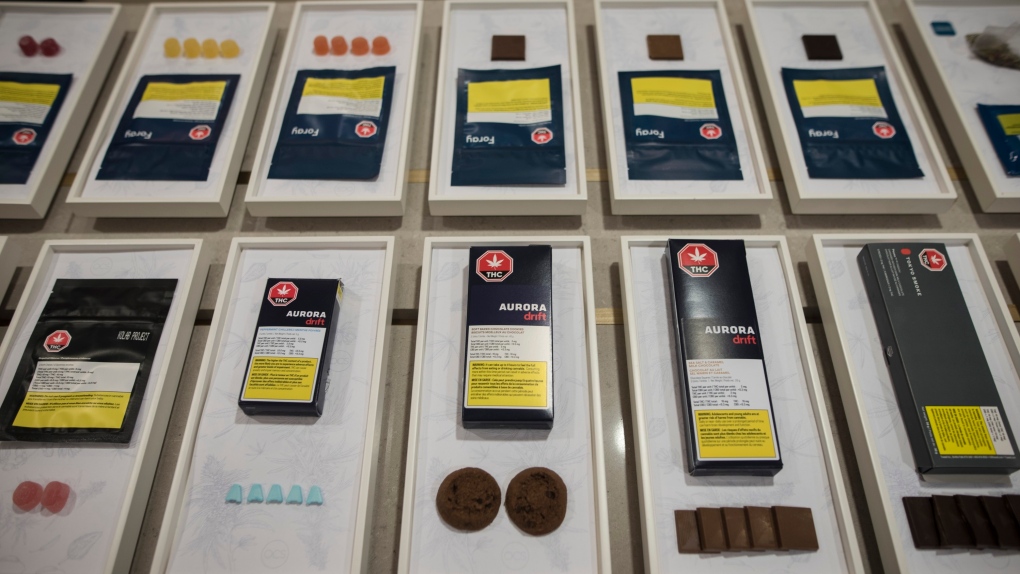Canada's competition watchdog is putting its weight behind some longtime cannabis industry asks including easing restrictions on cannabis packaging and adjusting limits on how much of pot's psychoactive component can be in edible products.
In a submission to Health Canada and a panel reviewing cannabis legislation published Friday, the Competition Bureau positioned changing tetrahydrocannabinol (THC) limits and giving pot companies more freedoms around packaging and marketing as a way to boost competition.
"The bureau believes that stronger competition in the cannabis industry would help foster innovation and benefit consumers by providing them with increased choice and quality," it wrote in its submission.
"Importantly, these benefits would serve to further displace illicit market activity and bolster the legal cannabis industry."
A 2022 survey from Health Canada found nearly half of the 10,048 respondents who used cannabis in the past year purchased the substance exclusively from legal sources, an increase from 43 per cent in 2021.
Some believe the true share of the illicit market is higher because of the stigma around revealing cannabis use.
Pot producers and shops have long felt THC and packaging changes would chisel away at the market share illicit sellers have and help them reduce the hefty number of layoffs, facility closers and writedowns they've taken in recent years to keep their businesses afloat.
Their calls for change have grown in recent months after Ottawa launched a review last year of the Cannabis Act, which set purchase and possession limits and established safety requirements for growing, selling and transporting the substance.
When legalization legislation came into effect in 2018, it prevented cannabis products from being packaged in a way that is enticing to youths and limited THC in edibles to 10 mg per package. Illicit products often exceed the limit.
Stakeholders have told the bureau increasing the limit to 100 mg "could make edible cannabis products more appealing to consumers, especially those currently sourcing them from the illicit market."
The bureau suggested easing restrictions on cannabis promotion, packaging and labelling would also give producers more room to innovate and help consumers make more informed purchasing decisions.
To comply with regulations, most pot companies package their products in staid, black or white containers devoid of eye-catching branding, which could help differentiate one product from another.
The bureau also took aim at the cannabis licensing process and compliance costs, suggesting they be made "minimally intrusive to competition, where possible."
The process currently requires cannabis producers to have facilities nearly completed -- a process often costing millions -- before they can receive licenses. Then, there are "lengthy and costly" security requirements and annual regulatory fees.
"By minimizing the regulatory burden of the licensing process and reducing compliance costs, where possible, decision-makers can reduce barriers to entry and expansion, as well as stimulate even more effective competition," said the Bureau.
Rounding out its recommendations was a suggestion regarding excise duties, an area outside of the panel reviewing the act's purview.
The duties are imposed on products when they're delivered to buyers. For dried and fresh cannabis, plants and seeds, they amount to the higher of $1 per gram or a 10 per cent per gram fee.
For edibles, extracts and topicals, it's a flat rate based on the number of milligrams of total THC in the product. There are additional duties in Alberta, Nunavut, Ontario and Saskatchewan.
The total amount of unpaid cannabis excise duties has risen since legalization, the bureau said. As of September 2022, 66 per cent of licensees required to remit excise duties had an outstanding debt with the Canada Revenue Agency, the bureau said.
"Many stakeholders interviewed by the bureau raised Canada's excise duty framework -- and excise duty rates specifically -- as a major barrier to competition in the cannabis industry," the submission said.
"These stakeholders told the bureau that the current excise duty regime makes profitability and viability in the industry very challenging."
Canopy Growth Corp., a Smiths Falls, Ont. cannabis company, welcomed the Bureau's recommendations, chief executive David Klein said.
He found the suggestions mirror many of the industry's pleas.
"Legal producers need to be able to deliver the range of formats and potency that consumers are looking for to compete with the illicit market and support a sustainable cannabis industry in Canada," he said in a statement.
"It's equally critical that restrictions on engagement with consumers be revised to facilitate informed purchasing decisions and we hope government will act swiftly on these recommendations as time is of the essence."
This report by The Canadian Press was first published May 26, 2023.





































